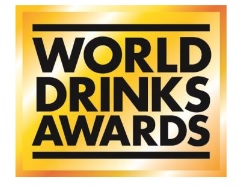Thanks to some British sensibility, my faith in Spirits Awards is now partly restored. The World Drinks Awards in my humble opinion appears to be on the track towards doing it right. Entries are slotted into their various categories and then each category judged once to weed out products that do not conform to expected characteristics. Surviving products are judged again to further whittle down the list. And then again to identify the category winner. There is none of the usual suspect nonsense of 19 people in a category all taking Gold, 23 people taking Silver and so on. In my travels, if I see a craft distiller ( or a distiller in general) who has won at this British event, I will definitely pay close attention to that product….
Monthly Archives: May 2018
SPIRITS AWARDS – CAVEAT EMPTOR – BUYER BEWARE
In her book Generation Y and the New Work Ethic, thought-leader Jeanne Martinson writes of how in 1979 UNESCO focused on the well-being of children. This effort culminated in the UN Decade of the Child (2001 to 2010). This launched the self-inflation movement where children’s self-esteem was to be guarded at all costs.
We have created a society in which everyone (not just children) is equal. There are no winners and losers. Everyone gets a gold star or a pat on the back for just showing up. When I was a wee lad in about Grade 5 I participated in the Canada Participaction Awards program. I took part in running, shot-putting, long jumping, high jumping and so on. We were judged on time and distance criteria and awarded points accordingly. If our cumulative score was high enough after finishing all events, we received a Gold badge to wear with pride on our jacket. Next category was Silver and after that Bronze. If our cumulative point score was not high enough for Bronze we got nothing, nada, zip, zilch. Needless to say, we all pushed ourselves to do well and be competitive. After all, that was the r’aison d’etre for the Participaction Program!
Today such a competition would not be allowed to take place for fear that some kid would get left off the awards list. We don’t have winners and losers anymore – everyone is a winner.
Sadly, as a consultant to the craft distilling movement I must report that this mentality has now infected the craft distilling industry. At the 2018 American Distilling Institute (ADI) convention and trade show that took place in Portland, Oregon, organizers created a Spirits Competition.
To ADI’s credit, the categories were generally reflective of the various styles of craft spirits being made. However, within these categories, ADI concocted a variety of useless sub-groups. For example – under the category of Malt Whisky, why is there an International Malt Whisky sub-group. Under Moonshine, why is there an International Moonshine? What is an Aged Hybrid Still Rum sub-group supposed to mean? What is an Aged Vodka sub-group supposed to mean? “No child left unhappy” seemingly is the objective. Create enough categories and sub-groups so that as many people as possible will be motivated to submit samples, thus maximizing revenues for ADI. Some quick calculations suggest that over $200,000 in revenues was generated from entry fees.
Can you imagine at the next Olympic Games if the athletes in the Decathlon event were given awards for sub-groups that included best red shoe laces, nicest curly hair, and sharpest blue eyes?
Things go farther astray when one learns that ADI awarded multiple medals in the various categories. For example, Aged Gin (Gin rested in an oak barrel for a period of time) is a hot commodity right now in the craft distilling world. I have tasted some very good Aged Gins in my travels. I see from the ADI judging results that there were 26 Bronze Medals awarded, 9 Silvers and 1 Gold. The one Gold medal I understand. This distiller garnered more than 80 points from each judge in this category. Kudos to that distiller. He has a great product and deserves his Gold medal. But 9 Silvers? 26 Bronzes? This is where common sense evaporates.
It means nothing for a distiller to tell a customer that he received a Bronze medal in Portland. The customer is thinking “Wow! This guy is good, he came in third in a big competition”. But this adoration may be mis-guided. The distiller submitted a sample of his spirit and along with 25 other distillers managed to scrape up 70 to 79 points from a panel of judges. This signifies mediocrity at best.
In keeping with the Olympics analogy, I suggest that at the next 100 meter sprint event, the organizers award Gold to the event winner, a couple Silvers to the next two athletes, and then for good measure maybe four or five Bronze medals. Yippee! Nobody left out. Everyone goes home with a piece of candy!
If this “no child left unhappy” mentality is allowed to flourish, how will the craft distilling movement flourish in a professional and respected way?
Lest it be suggested I am picking on ADI, I am not. In early 2018 the Canadian Whisky Awards doled out 22 Gold medals, 24 Silvers and 39 Bronze medals. The 2017 SIP Awards in San Francisco clearly state on their website that their judging event is based on a scale of 1 to 5 and a proprietary algorithm. To cite one of their categories – Gin, the 2017 awards comprised 13 Platinum medals, 19 Gold, 9 Silver and 6 Bronze. No child left unhappy indeed!
As a consumer traveling around visiting craft distilleries, you will start to notice more and more of these award certificates on display. To determine the true value of an award, boldly ask what category and sub-category was the award for? Ask how many other entrants got the same award in that category/sub-category? If these questions are dodged, then let the old adage apply – caveat emptor – buyer beware!




